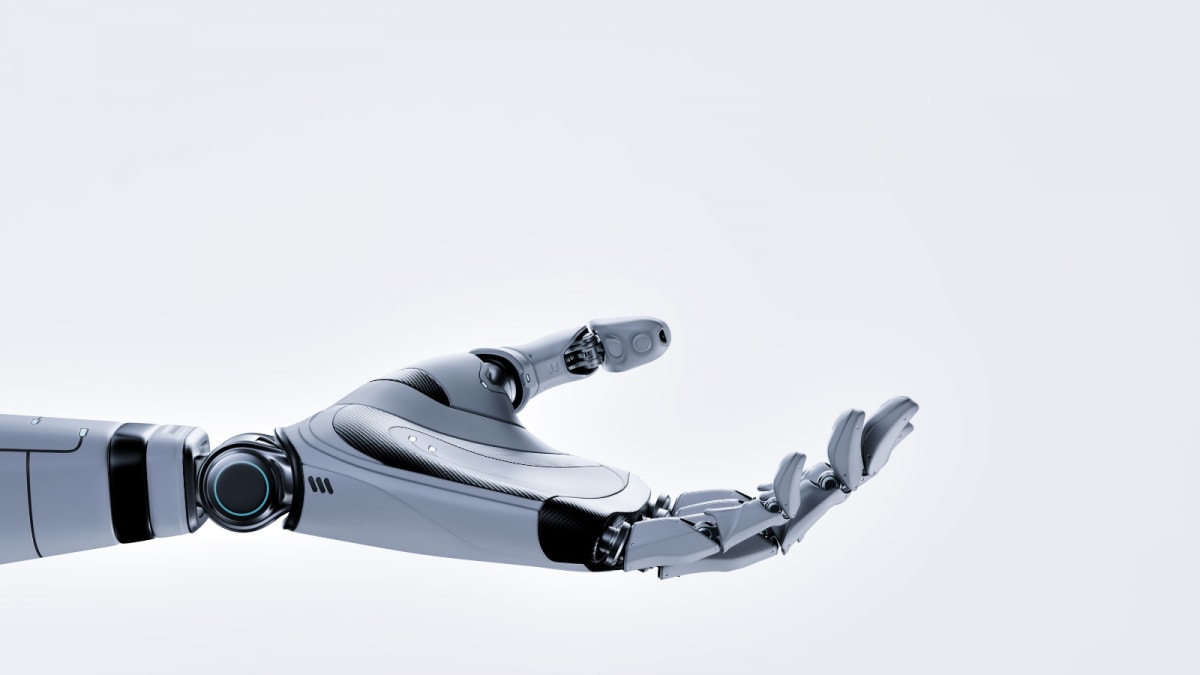Last Updated:
Unlike past revolutions where new jobs replaced old ones, AI may take over all roles itself, leading Dr. Yampolskiy to call it humanity’s ‘last invention’

Dr. Roman Yampolskiy predicts humanoid robots will soon handle plumbing, cooking, electrical work, and construction. (Representative/Shutterstock)
Artificial Intelligence (AI) has been a hot topic of discussion over the past three to four years, largely due to its rapid advancements. AI tools can now create entire videos from pictures, compose songs in seconds, and even converse in human-like voices.
Chatbots can answer questions, write stories, and perform coding. From design to business planning, AI’s influence is ubiquitous. However, this progress brings significant concerns, the most prominent being the potential for widespread unemployment.
Dr. Roman Yampolskiy, a renowned AI expert, recently discussed these issues on the ‘Diary of a CEO‘ podcast. Dr. Yampolskiy has extensively studied AI and believes it will fundamentally change our lives.
Here are some key points from his podcast:
Firstly, it’s essential to understand what AI is. Artificial Intelligence refers to computers that can read books, answer questions, and even drive cars. In the future, AI will become even more powerful.
Dr. Yampolskiy explains that there are two types of AI: narrow AI, which specialises in specific tasks like playing chess, and general AI, which can perform a wide range of activities. Eventually, we may see super AI, which will surpass human capabilities in every aspect.
What Dr. Roman Predicts For 2027
Dr. Yampolskiy’s prediction for 2027 is that General AI could emerge, enabling machines to think and make decisions like humans. A futuristic machine may do the work of doctors, lawyers, and drivers for free, with a low-cost app taking care of everything.
Dr. Yampolskiy warns that this shift could dramatically impact employment, with unemployment potentially reaching 99%. Jobs currently performed on computers, like writing articles, designing, and data entry, will be the first to disappear. Subsequently, robots could take over physical tasks such as cleaning, factory work, and deliveries.
This will be possible as AI technology becomes far faster and more cost-effective than humans. The driving industry, one of the largest in the world, could see millions of drivers unemployed if AI fully takes over. Self-driving cars, like Waymo, already exist, operating independently and eliminating the need for human drivers.
Dr. Yampolskiy estimates that by 2027, AI will be capable of performing nearly every job, though this transition may take some time. He draws a parallel to video phones, invented in 1970 but only becoming widespread with the advent of the iPhone.
What Jobs Will Survive In An AI-Dominated Future?
Dr. Roman Yampolskiy, in such a scenario, very few jobs will remain. These will likely be roles where human presence is preferred, such as traditional accountants for the wealthy or handmade goods enthusiasts. However, this will be a niche market, similar to the current demand for ‘Made in India’ or ‘handmade’ products.
AI’s superiority will extend to all fields, including podcasting, where it can read books, prepare questions, and produce videos.
Contrary to some beliefs, Dr. Yampolskiy asserts that AI can indeed be creative, already composing music, creating art, and writing stories. AI’s vast knowledge of city maps, for example, makes it a more accurate navigator than an Uber driver.
Similarly, AI can potentially surpass professors by incorporating all their lectures into its teaching. Even new roles like ‘prompt engineering’ will eventually be handled by AI.
This change, Dr. Yampolskiy notes, will differ from past revolutions. Unlike the industrial revolution, where new jobs emerged alongside the loss of others, AI will likely do new jobs itself, marking what he calls the ‘last invention.’
What Happens When AI Takes Over All Human Jobs?
When all jobs are gone, Dr. Yampolskiy presents a mixed outlook. On the positive side, AI will make everything cheaper, allowing governments to provide basic necessities for free, potentially leading to a good quality of life for everyone. However, the challenge will be how people spend their time. With 60 to 80-hour workweeks becoming obsolete, people might feel lost, leading to increased crime, societal chaos, and a population surge.
Currently, Dr. Yampolskiy warns, governments lack plans for this future. AI’s rapid progress, known as ‘Singularity,’ will outpace human comprehension, creating new innovations at an unprecedented rate.
The World In 2030 And Beyond
Looking towards 2030 and beyond, Dr. Yampolskiy predicts the arrival of humanoid robots that will resemble humans and perform tasks like plumbing, electrical work, cooking, and construction. These robots, fully integrated with AI, will eliminate jobs requiring physical labour, bringing about a complete transformation of the world.
Can We Stop This Progression?
Dr. Yampolskiy suggests that halting the development of ‘super AI’ is possible by focusing solely on ‘narrow AI’ for specific tasks like cancer treatment or scientific research. He warns that AI, once spread, will be difficult to stop, likening it to a virus. Only if global powers like China and America recognise the potential threat to humanity can we hope to curb its development.
What Should We Do?
Dr. Yampolskiy advises raising awareness, listening to AI experts, and supporting groups like Pause AI. Education should adapt to teach children to work alongside AI. Importantly, we must avoid creating super AI.
If managed correctly, AI could help combat climate change, prevent wars, and improve life. However, a misstep could lead to the end of human civilisation.
September 16, 2025, 16:50 IST
Read More







